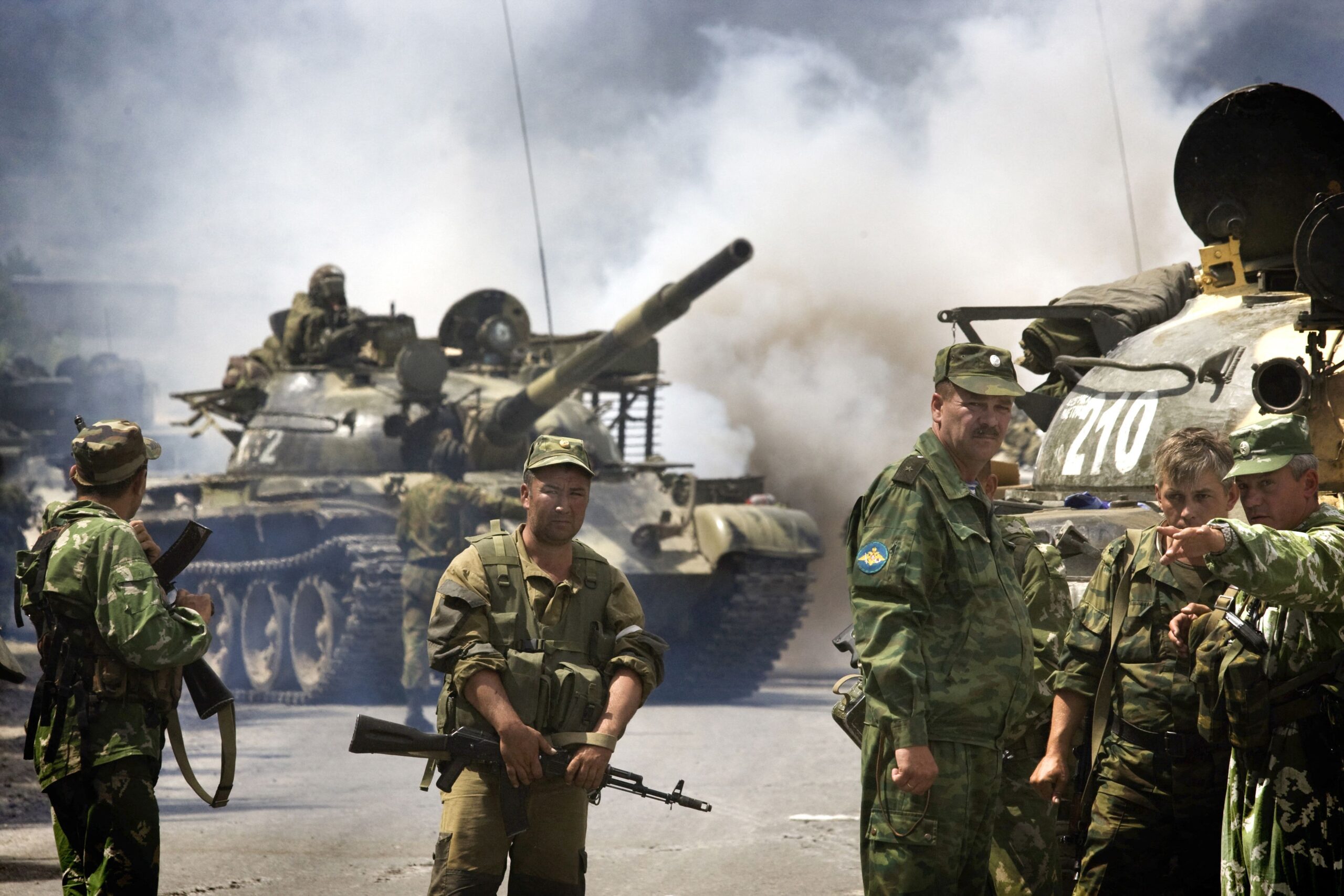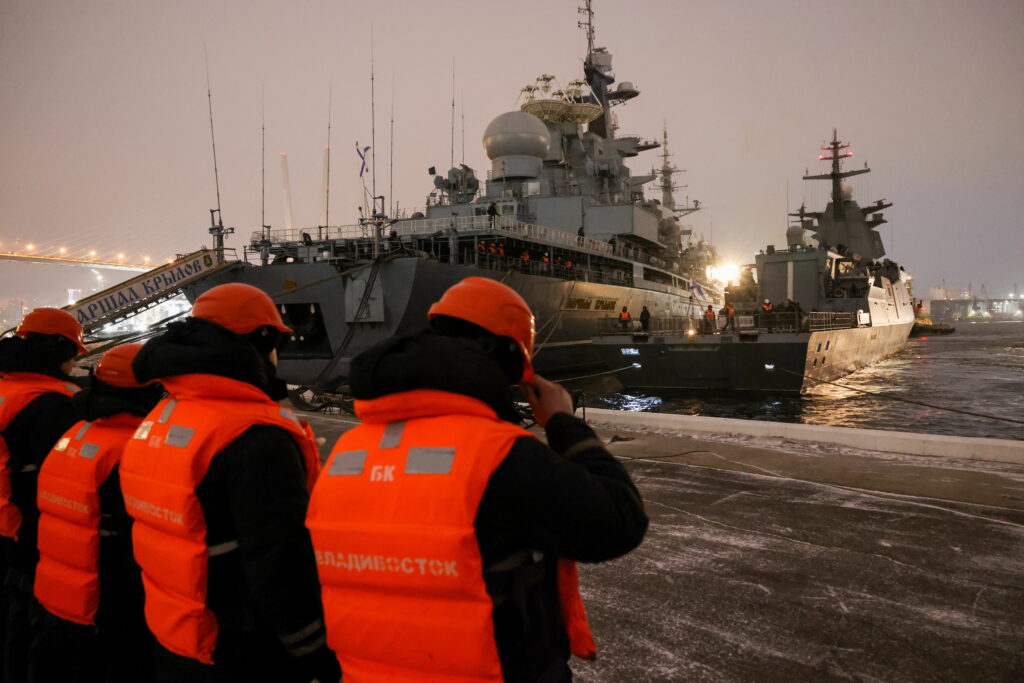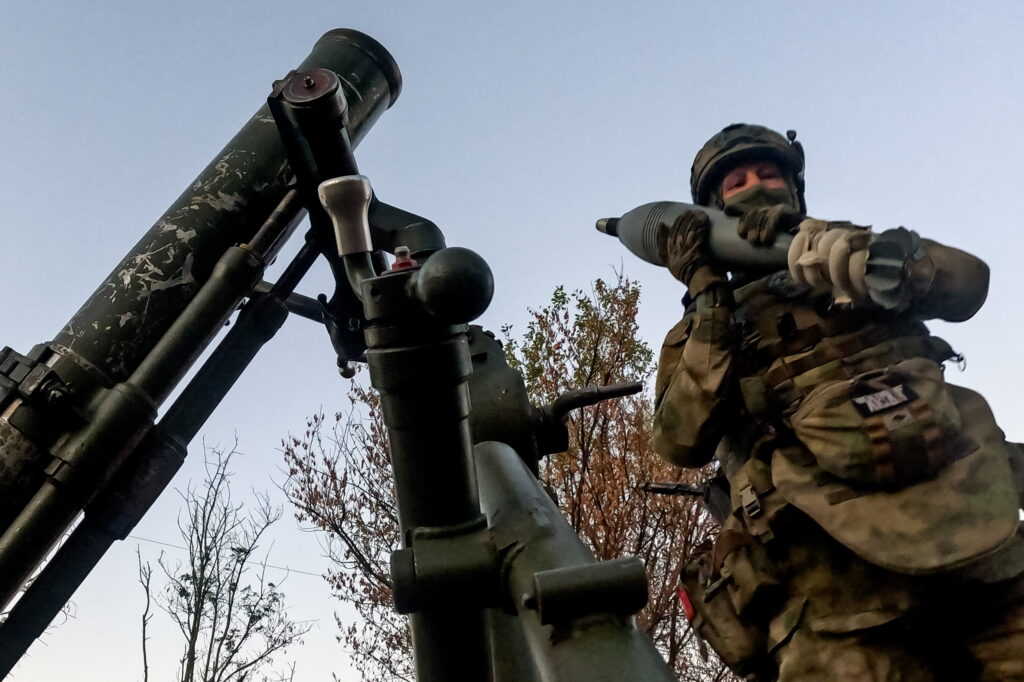In late March, Russia’s military said it was withdrawing from northern Ukraine after a month of failing to capture the Ukrainian capital. Its withdrawal revealed grim evidence of war crimes. In towns like Bucha, previously a leafy suburban town of Kyiv, excavators found traces of at least 300 civilians murdered, mostly men of military age — some dumped in mass graves, others left in the street. Similar crimes have also been widely reported in Irpin, Borodyanka, and Hostomel. These towns witnessed cases of murder, as well as looting, rape and sexual abuse.
Few would deny these crimes are horrific. Vladimir Putin, as Commander in Chief, ultimately bears responsibility for the behavior of his military. Yet as horrifying and as unjustifiable as they are, no one with a familiarity of the Russian military itself can be surprised by these crimes. Guilty of a long history of abuse, the Russian military has consistently failed to adopt an internal culture to mitigate such behavior and reduce collateral damage.
The Tbilisi turning point
Back in April 1989 — over 30 years ago — the world watched as soldiers waded into a crowd of peaceful demonstrators, battering them while throwing stun grenades. This was Tbilisi, Georgia, and the uniformed soldiers were members of the local Soviet garrison who had been called to disperse the protests. In past decades, such a brutal repression would probably have gone unremarked domestically, even if condemned internationally. But 1989 was a turning point for Mikhail Gorbachev’s policies of glasnost and perestroika. The Soviet military, for the first time in its history, found itself called to account for its actions and condemned by civilian leadership.
A reckoning like the procedural aftermath of the tragedy in Tbilisi had been long overdue. Acts of brutality like those in Georgia had been commonplace in the annals of the modern Soviet and later Russian military. The War in Afghanistan 1979−1989 was waged with absolute brutality. Soviet forces used cluster munitions to mine large areas; they bombed villages and executed civilians. After Tbilisi, there were similar uses of live ammunition and lethal weapons in Baku and Vilnius against civilians between 1989−1991. In each of these cases, there were calls to investigate the crimes and bring criminal prosecution, with recognition that there had been scant effort to distinguish between civilians and combatants. This led the military hierarchy to feel it was being scapegoated by the political leadership, which affected their behavior during the 1991 August Coup.
Instead of promoting full-scale change, however, the so-called Tbilisi syndrome only went as far as influencing soldiers at all levels to hedge their bets. For example, Moscow’s airborne forces commander Pavel Grachev was ordered to surround the Russian parliament, a focal point of the civic opposition to the August Coup. He complied, but the men there stayed in their tanks and pointed their guns away from the building, leading to some reports that the units had defected. The truth is more nebulous and complicated, but historical research by Brian Taylor, Vlad Zubok, Sergi Plokhy and others show the military was willing to obey orders technically, but was unenthusiastic for fear of future political backlash and prosecution. Grachev, for instance, wanted any storm order in writing, likely as a way to avoid being a subsequent scapegoat. Indeed, as an institution, the military in Russia and the USSR was always non-political but highly autonomous. The military may have been subordinate to the civilian authorities, but had a wide degree of latitude in how it governed itself. (Arguably in Post-Soviet Russia, this autonomy has gradually been eroded by Putin’s political machine, though the military is a key player in this system, and major beneficiary.) Glasnost, though, brought military unaccountability under scrutiny. Previously taboo subjects became points of discussion and popular outrage. Among these was the practice of dedovshchina, a brutal and dehumanizing hazing that conscripts were subjected to during their term of service. Dedovshchina could often go beyond hazing and rapidly veer into sexual and physical abuse.
In some cases, conscripts killed fellow soldiers in Afghanistan in retaliation for such treatment. The dehumanization of dedovshchina was justified as necessary to ‘break in’ conscripts and imbue in them a mentality suitable for military life. All global militaries practice this kind of initiation in one form or another to varying degrees, because it is necessary to condition a human to be mentally prepared to kill another human. However, the Russian practice lacks any of the restraints or accountability that Western militaries have sought to implement. The goal is to enforce not just discipline but total obedience to the chain of command. The revelation of the dedovshchina practices in the late 1980s severely harmed the military’s public image and led to a sharp increase in draft dodging; by the last years of the USSR up to 90% of young men eligible for call up were not reporting to depots. There were also pushes from within both the Soviet and Russian parliaments for greater control and oversight of the military. Anatoly Sobchak, who later became mayor of St Petersburg and political mentor of Vladimir Putin and Dimitri Medvdev, spearheaded an investigatory commission into Tbilisi, finding the commanding officer culpable, but no prosecution was ever brought.
Yeltsin’s missed opportunity and the Chechen precedent
The push for greater oversight of the military was eclipsed by the political turmoil after the collapse of the August Coup, something that in no small part was owed to the Soviet Defense Minister losing his nerve and ordering troops back to barracks. The USSR dissolved and the military refused to come back out of its barracks to save it. Had Russia followed a path similar to its Western neighbors in Poland, the DDR or Romania it is possible the new government could have broken its long running traditions of utilizing the tools of authoritarianism to assert control over the state. This did not happen. Yeltsin reformed and renamed the KGB, for instance, but did not disband it. The military, likewise, was formally reconstituted in May, 1992, as the Russian Armed forces. By 1993, the military was once more called upon to settle a political dispute. Despite having tried very hard to remain out of day-to-day politics, Pavel Grachev, now the Russian defense minister, was ordered by Boris Yeltsin to use military force to disband the Russian parliament (which had been threatening Yeltsin with impeachment.) Grachev agreed, though only after Yeltsin gave him an explicit written order. With this, the Russian military crushed the parliament with the subtlety of a sledge hammer. They ended up killing 150 people, and wounding over 500 more — a tally that included an American marine on duty at the US embassy. The world, including the US, applauded Yeltsin’s actions.
Soon afterward, Russia careened into the brutal 1994 first Chechen war. Here, its chronically underfunded and under trained military resorted to indiscriminate bombing while trying to capture Grozny and other Chechen cities. Grachev found himself sacked; public pressure on Yeltsin over mounting casualties forced a ceasefire. Again though, any changes to the military were purely cosmetic; there was never a serious attempt to address the underlying culture that had led to War crimes. Subsequent asymmetric terrorist actions targeting Russian civilians by Chechen fighters led to renewed conflict and renwed horrors, but this time, working with local allied militias, the Russians were able to declare a victory — even though in practice Chechnya became the personal possession of the Kadyrov family.
Putin’s exulted military
As the Putin regime built on the foundations laid by Yeltsin, the armed forces were once again held up and glorified as a pillar of Russian identity. Russian soldiers who committed war crimes in Georgia, Syria, and Ukraine (before the current conflict) never faced disciplinary action and the military as a whole never absorbed any institutional culture that may help minimize civilian casualties. Western militaries have increasingly moved in the other direction, even at the expense of operational tempo. But in the Russian military, no such safeguards exist. Nor has its supposed professionalization done anything to curtail such behaviour. The tragic scenes coming out of Ukraine illustrate this. Officers all throughout the chain of command will order overwhelming firepower against any target in order to force it into submission — a nod to its playbook from Chechnya. Soldiers of all units and ranks find themselves in hostile territory among a population they have been told hates them. These soldiers are armed and there are no restraints. This is a recipe for systematic atrocities and such atrocities have and will continue to happen in Ukraine.
There was perhaps an opportunity in the 1990s to force the military to change its culture and subject it to more strenuous oversight, but those opportunities like so many others, were missed. Reforms that followed the 2008 war against Georgia were meant to increase fighting agility and lethality while maintaining cohesion in the face of the enemy. Left to one side were notions of ensuring soldiers and officers were trained in the rules and conduct of war as specified by the Geneva protocol. So the military regained its discipline and cohesive power in small scale operations, yet stayed unrepentant of its past actions. That stood in sharp contrast to its Western counterparts for whom the need to emphasise an avoidance of War Crimes at all levels became a crucial touchstone of military culture. Today’s atrocities are all because Russia’s military never outgrew the mindset of its Soviet forebears; it remains focused on lethality and victory at all costs. Its institutions do not shy away from brutality and maintain a disregard for human life, which clears the way new atrocities without accountability.










